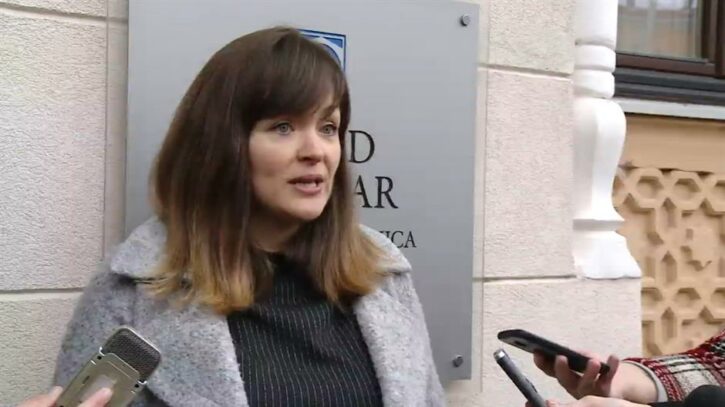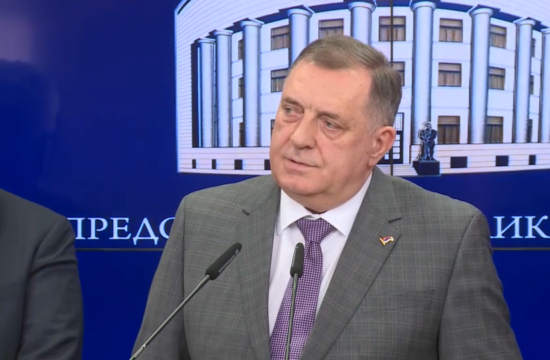
The Human Rights Court in Strasbourg will consider the lawsuit a Bosnian woman has submitted against Bosnia over not organising local elections in the southern city of Mostar for the past eight years, depriving her and the rest of the citizens in the city of their rights to elections, the plaintiff told reporters on Monday.
Bosnia’s Parliament did not implement an obligatory ruling passed by the Constitutional Court in 2010, depriving the city of the right to participate in the local election in 2012 and 2016, said Irma Baralija.
She explained that Bosnia and Herzegovina is a signatory of the Declaration on Human Rights and protocol 12, which bans discrimination on any basis, including place of residence. That relates directly to the issue of elections in Mostar, she said.
“We sent the relevant documentation to Strasbourg in June. We did not make it public as we were not sure the application is valid. We did not hear back until recently,” she said. “We received a letter saying that our application was valid and that the court will consider our case.”
Bosnia’s Constitutional Court ruled that the city's electoral statute was unconstitutional because the six electoral constituencies were electing the same number of representatives to the City Council although they had a very different number of voters.
Mostar remains divided among two main parties, the Croat Democratic Union (HDZ) and the Party for Democratic Action (SDA). The two disagree over how the problem should be solved, whereby the HDZ is favouring a “one person, one vote” principle while the SDA wants the city to be divided into several municipalities.
The “one person, one vote” principle suits the HDZ having in mind that the number of Croats in the city is larger than the number of Bosniaks.
However, the party rejected that principle on the level of the Bosniak-Croat semi-autonomous Federation (FBiH) entity, where Bosniaks are the majority.
Baralija said that this is not a political party lawsuit, although she was a candidate at the October local election.
“This is an individual lawsuit. It is named Baralija vs. Bosnia and Herzegovina,” she said, adding that although she is individually suing the state, “it was submitted on behalf of all of us who live in Mostar.”
“It is based on violations of rights, our right not only to elect but also to be elected is being breached,” she said.
“I was a candidate in the past election, citizens gave me their support. Had a local election taken place – I would have been sitting in the City Council. Changes are taking place in the city, and we are not permitted to state our opinion,” she said.
The governing over Mostar’s citizens has to stop, and the citizens need to be granted their right to govern their own lives, she stressed.
“No institution in Bosnia has provided answers throughout these eight years. We are basing this on Protocol 12, a breach which the court determined in the Sejdic-Finci case,” Baralija explained.
The case she referred to involved a member of the Roma minority, Dervo Sejdic, and a Jew, Jakob Finci, suing Bosnia over the country’s constitutional rule saying that nobody except for members of the three majorities in the country, Bosniaks, Croats and Serbs, can be elected to the state Presidency and other offices.
The court ruled in their favour, but Bosnia has failed to implement the ruling.
Baralija said that she does not know how long the process could last, but that it could help Mostar return to the political agenda in the country.




